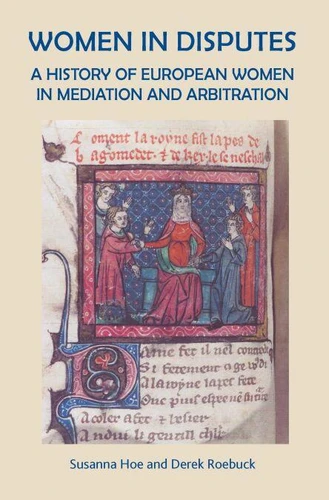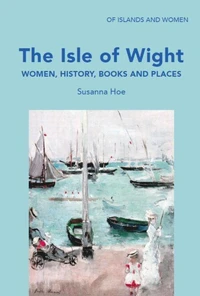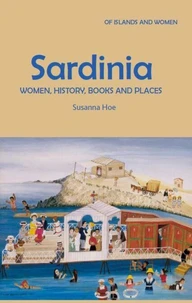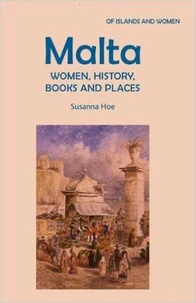Women In Disputes: A History of European Women in Mediation and Arbitration.. Women, History, Books and Places, #3
Par :Formats :
Disponible dans votre compte client Decitre ou Furet du Nord dès validation de votre commande. Le format ePub protégé est :
- Compatible avec une lecture sur My Vivlio (smartphone, tablette, ordinateur)
- Compatible avec une lecture sur liseuses Vivlio
- Pour les liseuses autres que Vivlio, vous devez utiliser le logiciel Adobe Digital Edition. Non compatible avec la lecture sur les liseuses Kindle, Remarkable et Sony
- Non compatible avec un achat hors France métropolitaine
 , qui est-ce ?
, qui est-ce ?Notre partenaire de plateforme de lecture numérique où vous retrouverez l'ensemble de vos ebooks gratuitement
Pour en savoir plus sur nos ebooks, consultez notre aide en ligne ici
- FormatePub
- ISBN8231912391
- EAN9798231912391
- Date de parution27/03/2025
- Protection num.Adobe DRM
- Infos supplémentairesepub
- ÉditeurWalzone Press
Résumé
In this book two ways of writing of the past meet and mesh. One of us has written on mediation and arbitration history for many years, the other on women's history. Because we have worked in the same room during that time, reading and commenting upon everything the other has written, we have influenced each other's content, so that the dispute resolution histories have included women and the women's history have, where practical, included dispute resolution.
Then came the time to take that further. This is the result. This is not the first time we have written together. Although The Taking of Hong Kong: Charles and Clara Elliot in China Waters, developed mostly from women's history research, it includes a fascinating and fully fledged arbitration scheme devised by Charles Elliot as British Plenipotentiary in nineteenth-century China waters. Women in Disputes is far more of a joint effort than that was, so that it combines the narrative of women's lives where it has been possible to find material, as well as exploring the techniques of dispute resolution involving women over several centuries and covering several jurisdictions.
Throughout the fifteen years in which we have come to know her, the ancient Greek queen Arete has become for us a special woman, for whom we have the same regard we have for the sensitive poet who first sang her praises; indeed, we planned initially to call the book Arete's Daughters but were advised that the title was confusing. Our next title was Peace weavers, but that might have been thought to be about textiles.
We hope that the more obvious Women in Disputes will encourage a better understanding and recognition of the roles that women have played and the contribution they still make as peace weavers.
Then came the time to take that further. This is the result. This is not the first time we have written together. Although The Taking of Hong Kong: Charles and Clara Elliot in China Waters, developed mostly from women's history research, it includes a fascinating and fully fledged arbitration scheme devised by Charles Elliot as British Plenipotentiary in nineteenth-century China waters. Women in Disputes is far more of a joint effort than that was, so that it combines the narrative of women's lives where it has been possible to find material, as well as exploring the techniques of dispute resolution involving women over several centuries and covering several jurisdictions.
Throughout the fifteen years in which we have come to know her, the ancient Greek queen Arete has become for us a special woman, for whom we have the same regard we have for the sensitive poet who first sang her praises; indeed, we planned initially to call the book Arete's Daughters but were advised that the title was confusing. Our next title was Peace weavers, but that might have been thought to be about textiles.
We hope that the more obvious Women in Disputes will encourage a better understanding and recognition of the roles that women have played and the contribution they still make as peace weavers.
In this book two ways of writing of the past meet and mesh. One of us has written on mediation and arbitration history for many years, the other on women's history. Because we have worked in the same room during that time, reading and commenting upon everything the other has written, we have influenced each other's content, so that the dispute resolution histories have included women and the women's history have, where practical, included dispute resolution.
Then came the time to take that further. This is the result. This is not the first time we have written together. Although The Taking of Hong Kong: Charles and Clara Elliot in China Waters, developed mostly from women's history research, it includes a fascinating and fully fledged arbitration scheme devised by Charles Elliot as British Plenipotentiary in nineteenth-century China waters. Women in Disputes is far more of a joint effort than that was, so that it combines the narrative of women's lives where it has been possible to find material, as well as exploring the techniques of dispute resolution involving women over several centuries and covering several jurisdictions.
Throughout the fifteen years in which we have come to know her, the ancient Greek queen Arete has become for us a special woman, for whom we have the same regard we have for the sensitive poet who first sang her praises; indeed, we planned initially to call the book Arete's Daughters but were advised that the title was confusing. Our next title was Peace weavers, but that might have been thought to be about textiles.
We hope that the more obvious Women in Disputes will encourage a better understanding and recognition of the roles that women have played and the contribution they still make as peace weavers.
Then came the time to take that further. This is the result. This is not the first time we have written together. Although The Taking of Hong Kong: Charles and Clara Elliot in China Waters, developed mostly from women's history research, it includes a fascinating and fully fledged arbitration scheme devised by Charles Elliot as British Plenipotentiary in nineteenth-century China waters. Women in Disputes is far more of a joint effort than that was, so that it combines the narrative of women's lives where it has been possible to find material, as well as exploring the techniques of dispute resolution involving women over several centuries and covering several jurisdictions.
Throughout the fifteen years in which we have come to know her, the ancient Greek queen Arete has become for us a special woman, for whom we have the same regard we have for the sensitive poet who first sang her praises; indeed, we planned initially to call the book Arete's Daughters but were advised that the title was confusing. Our next title was Peace weavers, but that might have been thought to be about textiles.
We hope that the more obvious Women in Disputes will encourage a better understanding and recognition of the roles that women have played and the contribution they still make as peace weavers.






